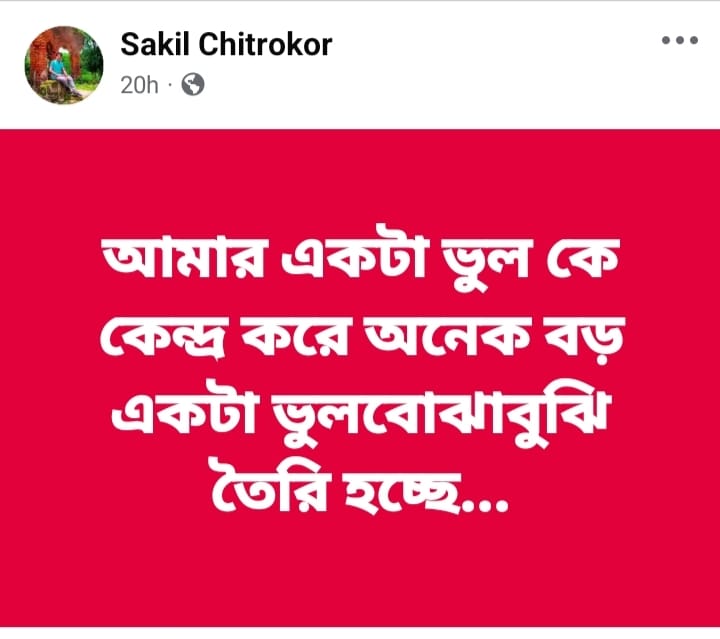A final-year student of the Faculty of Fine Arts at the University of Dhaka, Shakil Ahmed (24), commited suicide early Tuesday morning at his home in South Jamsha village, Singair Upazila, Manikganj, according to his family.
Shakil, son of Nasiruddin Ahmed, had recently faced intense social pressure and threats following an old Facebook comment he made regarding the Prophet Muhammad (PBUH). His family claims he had deleted the comment long ago, but it was recently resurfaced and went viral, leading to a backlash from locals.
Relatives and neighbours said that in response to the comment, villagers and people from nearby areas gathered outside his home on Monday night, threatening him and his family. Shakil, overwhelmed by the situation and public shaming, was later found hanging in his room around 2 a.m.
Before his death, Shakil posted several emotional messages on Facebook. In his final post, he wrote:

“I am not an atheist, but everyone in the village is calling me one. I swear I never disrespected the Prophet Muhammad. My father used to be proud of me, and people in the village respected me. Now I’ve lost that respect. Tomorrow, everyone will insult my father and disrespect my mother. I can’t live with that shame. I know suicide is a grave sin. I’ve committed many sins, and now I’m ready for one last sin.”
Police, however, presented a slightly different view. Officer-in-Charge (OC) Toufiq Azam of Singair Police Station stated that Shakil had posted derogatory comments about the Prophet Muhammad (PBUH) and his wives, which resurfaced and went viral. According to the preliminary investigation, Shakil died by suicide out of guilt and concern for his family’s honour. An unnatural death (UD) case has been filed, and the body was sent to Manikganj Medical College for autopsy.
The tragic incident has sparked discussions about the consequences of online expression, mob pressure, and the psychological toll of public shaming in conservative rural communities.


